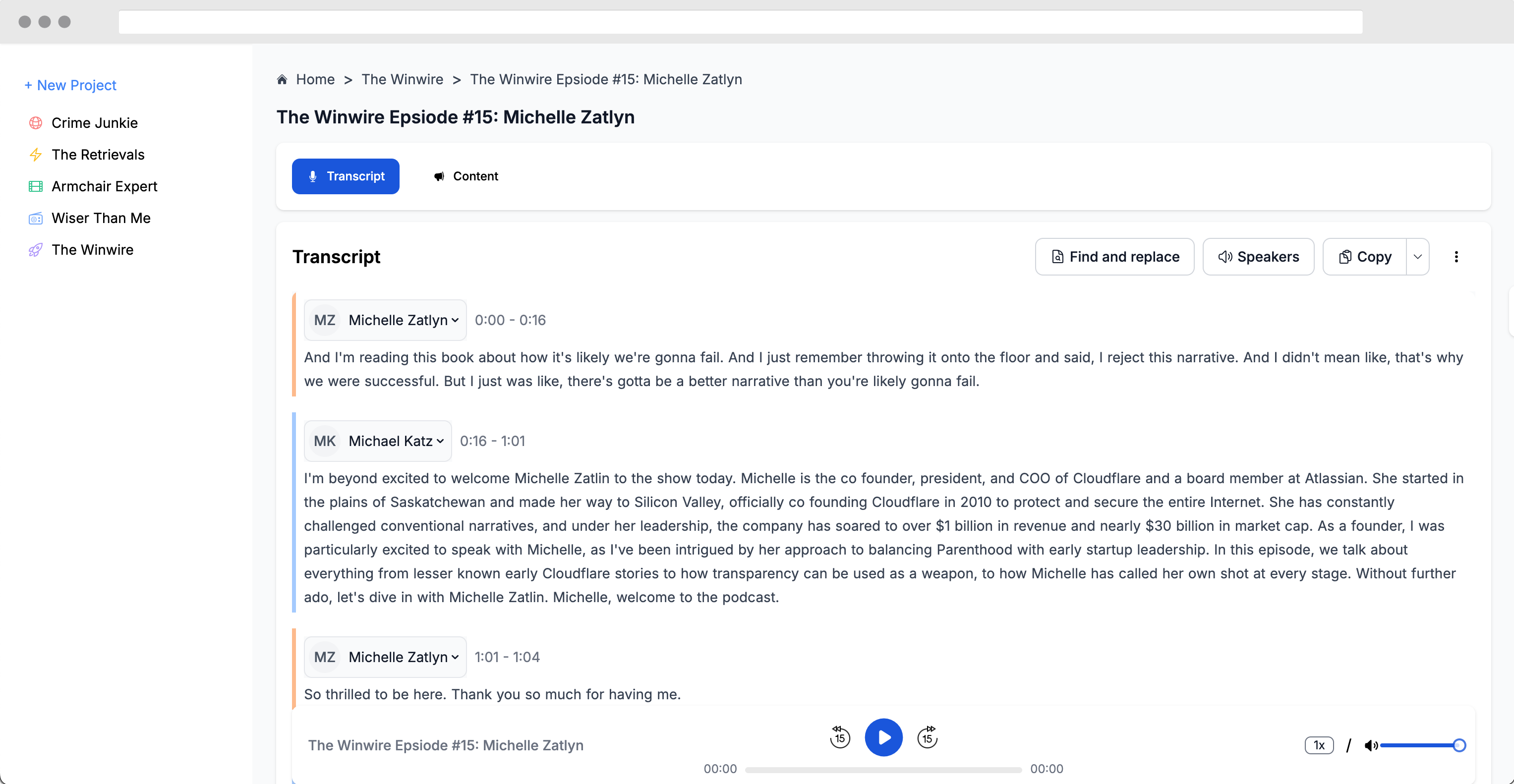Podcast Editing 101: Optimize Your Workflow from Start to Finish

Key Takeaways
Respect Time Constraints: Efficient podcast editing involves structuring content to fit within a set timeframe, enhancing the overall quality and listener experience.
Learn Quick Keys: Mastering the quick keys of your editing software can significantly speed up the editing process, making it more efficient.
Invest in Good Headphones: Comfortable, high-quality headphones are essential for long editing sessions, ensuring accurate sound mixing.
Choose the Right Software: Different digital audio workstations (DAWs) offer various features. Select one that aligns with your needs and preferences.
Consistent Levels: Maintaining consistent audio levels throughout your podcast ensures a professional and pleasant listening experience.
Overview
George Mocharko, a podcast editor, provided a comprehensive overview of podcast editing, emphasizing the importance of respecting time constraints and optimizing workflow. He shared his journey from radio to podcasting, highlighting how time constraints improved his efficiency.
Mocharko discussed the benefits of self-editing to save time and money, and recommended learning quick keys for software to speed up the process. He reviewed various digital audio workstations (DAWs) like Audacity, Adobe Audition, and Avid Pro Tools, explaining their features and his preferences.
He also stressed the importance of good headphones, consistent audio levels, and the use of plugins for audio repair. He concluded by underscoring the value of transcription and the necessity of editing for clarity and listener engagement.
Core Concepts
Efficient Editing Practices
Efficient editing is crucial for producing high-quality podcasts that respect listeners' time and maintain engagement.
Key Points:
Structure content to fit within a predetermined timeframe.
Use quick keys to speed up the editing process.
Invest in comfortable, high-quality headphones for long editing sessions.
Choose a DAW that suits your needs and preferences.
Maintain consistent audio levels throughout the podcast.
Examples:
George Mocharko emphasized the importance of structuring questions and content to fit within a 30-minute episode, a practice he developed from his radio show experience.
He recommended learning the quick keys of your DAW to make the editing process faster and more efficient.
Quotes:
Think in the time constraints, and that's part of the editing process.
Learn the quick keys of your software, and that's really going to make things go fast.
Choosing the Right Tools
Selecting the appropriate tools and software can make a significant difference in the editing process.
Key Points:
Different DAWs offer various features; choose one that aligns with your workflow.
Audacity is a free tool suitable for quick recordings.
Adobe Audition is preferred for those familiar with Adobe's ecosystem.
Avid Pro Tools is the industry standard for professional production.
Descript is useful for transcription and light editing.
Hindenburg is recommended for beginners due to its ease of use.
Reaper offers a cost-effective option with a strong community.
Examples:
George Mocharko shared his experience with various DAWs, highlighting Adobe Audition for its familiarity and Avid Pro Tools for professional use.
He mentioned using Descript primarily for transcription but also for light editing tasks.
Quotes:
I've actually worked in the Adobe Audition environment. I think Adobe Audition is probably one of the places that I like to go because I use a lot of Adobe software.
If you want to go into the media industry and you want to take your editing journey to a professional production studio, you want to make sure you're in the Avid Pro Tools environment.
Workflow and Organization
A well-organized workflow is essential for efficient and effective podcast editing.
Key Points:
Start by organizing your files and creating a template for your episodes.
Use a consistent naming convention for your files.
Limit the number of tracks to one or two for easier management.
Backup your files on an external SSD drive to prevent data loss.
Familiarize yourself with the visual representation of audio in your DAW.
Examples:
George Mocharko recommended creating a template with intro and outro files to streamline the editing process for future episodes.
He advised using an external SSD drive for backups, sharing a personal experience where this practice saved his work.
Quotes:
Your workflow begins with organization. So the first thing you want to do when you're starting your podcast and your project is you want to drop your intro and outro files into your DAW, and then you're going to save that as a template.
It's very important that you have an external SSD drive as your backup. I think having that has saved my butt a lot because I've actually had my computer go down.
Conclusion
Efficient podcast editing involves respecting time constraints, mastering quick keys, and investing in the right tools and equipment. George Mocharko emphasized the importance of structuring content to fit within a set timeframe, which enhances the overall quality and listener experience. He also highlighted the significance of choosing the right DAW and learning its quick keys to speed up the editing process. Additionally, investing in comfortable, high-quality headphones is crucial for long editing sessions. Maintaining consistent audio levels and organizing your workflow are also essential practices for producing professional and engaging podcasts.
Food for Thought
How can you further streamline your podcast editing process to save time and improve efficiency?
What additional tools or software could enhance the quality of your podcast production?
How can you ensure that your podcast content remains engaging and valuable to your listeners?
Reference Tools, Platforms, and Resources
Audacity: Free DAW for quick recordings.
Adobe Audition: Preferred for those familiar with Adobe's ecosystem.
Avid Pro Tools: Industry standard for professional production.
Descript: Useful for transcription and light editing.
Hindenburg: Recommended for beginners.
Reaper: Cost-effective DAW with a strong community.
Ulean Loudness Meter: Tool for maintaining consistent audio levels.
Authonic: Tool for adaptive leveling and normalization.
Otter AI, Rev.com, Descript: Transcription tools.
Isotope RX: Powerful audio repair and restoration tool.
Supertone Clear: Basic noise removal tool.
Adobe's Mic Check: Tool for checking microphone setup before recording.

test stat




